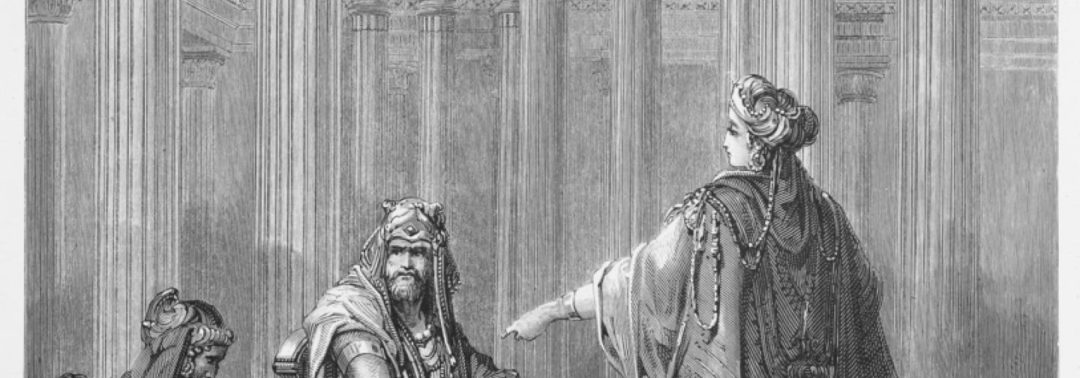I think I might have mentioned more than once that I enjoyed my “Interpretation as Resistance: Womanist, Feminist, and Queer Readings of the Bible” class last semester. One of the themes that really hit home for me about womanist interpretation is what it asks of me, as a white woman. I can’t use womanism as an interpretive lens, but I can look at a passage or story and ask myself what about the villain or oppressor (or oppressiveness) do I have in common, because of my whiteness?
The story we used in class was of Sarah and Hagar, and we read multiple interpretations–feminist, womanist, Christian, Jewish, and Muslim–about the time when Sarah goes to Abraham and has Hagar driven out. It was an amazing conversation, and I’ll never forget what one of my professors, Alika Galloway, highlighted: Sarah and Hagar could have bonded, could have been united, could have loved each other as sisters. They could have raised their sons together, and leaned on each other to survive. Instead, Sarah oppressed and exploited Hagar at every turn, and when Hagar threatened her power and authority in the camp, had her banished into the desert to die. White women, Alika said, are like Sarah in that passage.
Abraham had essentially sex trafficked Sarah to the Pharaoh of Egypt just a few chapters earlier. White women are oppressed by sexism and misogyny, and experience the same sort of violence from our partners that Abraham did to Sarah. But, instead of truly turning to other women who share those experiences, we often choose to survive this patriarchal system by exploiting white supremacy to grasp whatever power we can.
As we discussed this in class, the first character from the Bible that came to my mind was Zeresh. If you’ve never heard of her, don’t be embarrassed– basically no one I’ve talked to about her since then knows who she is. She’s Haman’s wife from Esther, and I know of her because of an animated Bible story I had as a child that featured her as a character. In that video she’s given more lines than she even has in the Tanakh, so I’ve known my whole life that Haman didn’t come up with the idea to execute Mordecai: his wife did.
Ever since last semester I’ve been thinking about what white women can learn from Zeresh, and I wrote an article about it for Sojourners. You can read it here, and I hope you do.

